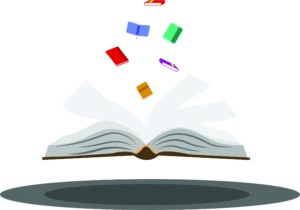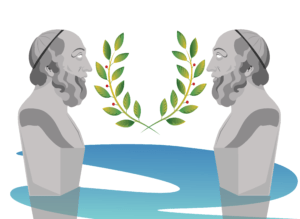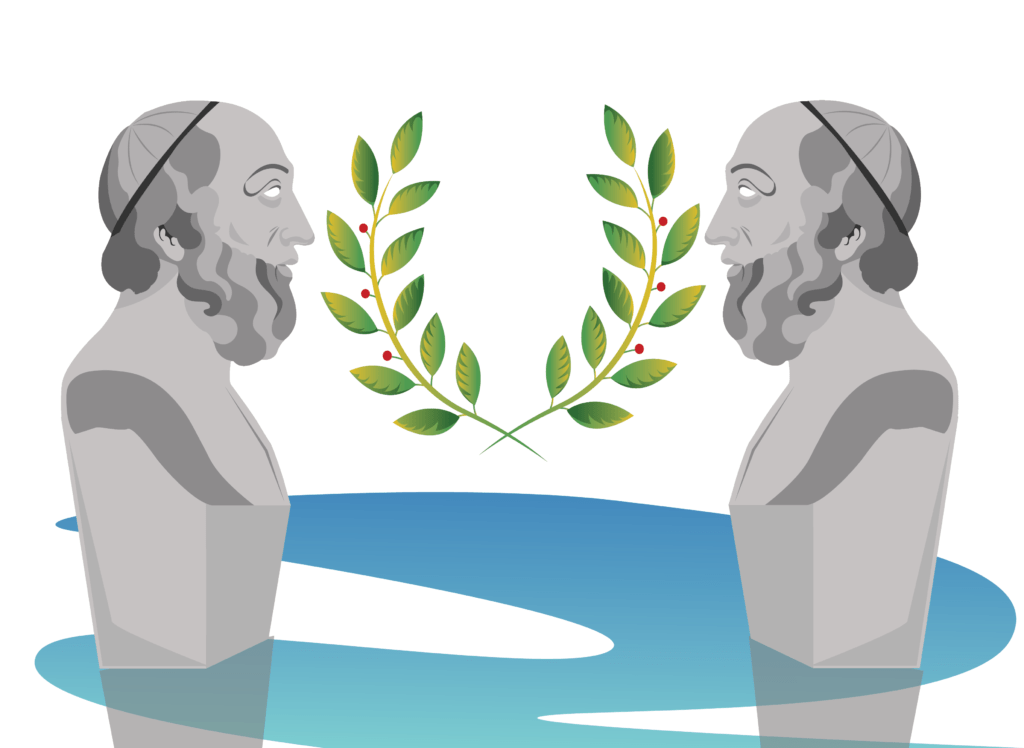“And we may further grant to those of her defenders who are lovers of poetry and yet not poets the permission to speak in prose on her behalf: let them show not only that she is pleasant but also useful to States and to human life, and we will listen in a kindly spirit; for if this can be proved we shall surely be the gainers–I mean, if there is a use in poetry as well as a delight?”
-PLATO, Book X, The Republic
The ancient-Greek philosopher Plato, a visionary, student of Socrates and teacher of Aristotle founded an academy in Athens, Greece, in the 4th Century B.C. and it is considered the first academic institution in history. It was in dedication to the Attic hero Academus.
Notably, students could attend for free.
The Republic makes use of a form of writing called the “Socratic dialogue”. Most of Plato’s philosophical writings are in the form of dialogues where Socrates is the protagonist and he answers questions asked by other Athenians.
In a survey of more than a 1,000 philosophers, academics and students by the Philosophers’ Magazine in 2001, Plato’s The Republic was voted as the greatest philosophy work ever written.
Most modern thinkers feel that the book does not deserve the award.
In an article by The Guardian, Julian Baggini, editor of the Philosophers’ Magazine at the time, argued that “you will be hard pressed to find a philosopher working today who will agree with more than 5% of it”.
He feels that “although the work was wrong on almost every point, the questions it raises and the methods it uses are essential to the western tradition of philosophy. Without it we might not have philosophy as we know it.”
Plato’s views on poetry are well known throughout the realm of education and scholarship. His discourses on poetry are well established in Book III and Book X of The Republic. Plato’s pervasive views on poetry reveals the extreme hostility he felt towards poetry and the reason why he wanted to ban poetry from the state entirely.
It is believed that Plato thought that poetry would corrupt the minds of the masses and would also lead them to have false conclusions about their gods.
Plato’s analysis of poetry in Book X of The Republic gives a damning verdict on how it affects the citizens’ thought process and he asks them to be more cautious in their assessment of these particular works.
According to Plato’s so-called “noble state,” poetry would be critically analyzed on two main grounds.
Firstly, according to Plato, all poetry is imitation and all poets are imitators – whose aim is to deceive the masses.
Secondly, poetry awakens “the beast” inside of us which results in inciting that part of us which can subvert the logical reasoning of our soul.
Plato’s attack on poetry should be appreciated as a way of protecting the young scholars as well as the masses from being influenced by poetry. He viewed poetry as an obstacle to citizens becoming model citizens of his ideal state. It must also be remembered that the period in which Plato lived was one marked by political dissoluteness and a decline in education.

In Book III, Socrates is conversing with fellow Athenian Adeimantus. He explains to Adeimantus that poetry and literature is an imitation of the truth. It is not necessarily true but seems as such. Plato’s main concern with such literature is the effect it can have on the young minds considered to be the future of the state.
Their minds are leeches to information and are easily impressionable. The immoral portrayal of Gods is considered by Plato to be a misinterpretation of the truth and can also have an adverse influence on children.
In Book X, Socrates is in conversation with Plato’s older brother Glaucon. They speak about the theory of imitation. Plato’s theory of mimesis explains the complicated relationship between imitation and reality.
Art, according to the philosopher, is an imitation of reality.
He gives the example of the maker of a bed. God is credited with the original idea of a bed as he is the creator of all things, the carpenter utilizes this idea to create his own version of a bed and finally, a painter who finalizes the work of the carpenter.
Thus, the painter being neither the original creator or a maker of the bed is an imitator.
Glaucon asks, “And the tragic poet is an imitator, and therefore, like all other imitators, he is thrice removed from the king and from the truth?” to which Plato replies, “That appears to be so.”
According to Plato’s theory, mimetic art does not provide value to a person’s knowledge of the functioning of the world. Art, drama, painting, poetry are deemed thrice removed from reality.
“There are three arts which are concerned with all things: one which uses, another which makes, a third which imitates them”
Since poetry is associated with illusion – where things are “thrice removed from the king and from the truth”, he advocates philosophy to be the top field of study as it deals with ideas.
All forms of art and poetry were regarded as unhealthy by Plato as the art connoisseur is made to feel a plethora of emotions. These emotions were considered unnecessary and undesirable. Art, being largely considered an imitation caused its admirers feelings of happiness or despair for events considered to be unreal.
Plato could not stand this.
He advocated for the study of the universe, society, justice, and the nature of reality and existence.

In a conversation with Glaucon, Socrates rhetorically asks, “The imitative artist will be in a brilliant state of intelligence about his own creations?” To which Glaucon knowingly answers “Nay, very much the reverse.”
Socrates explains that the imitator will continue creating without fully understanding what makes a thing good or bad. This is the real danger of drama as the audience will get falsely influenced by a flawed portrayal of reality. The “ignorant multitude” is therefore expecting a version of reality that is mostly good rather than the truth.
He adds “The imitator has no knowledge worth mentioning of what he imitates. Imitation is only a kind of play or sport, and the tragic poets, whether they write in Iambic or in Heroic verse, are imitators in the highest degree.”
Plato’s views on poetry have divided experts and scholars alike. There is rampant misinterpretation among lovers and opposers of art. The opposers would happily quote Plato – notably, the Puritans. And lovers of art would condemn Plato for unreasonably attacking poetry and literature.
Stephen Gosson, an English satirist agreed with Plato. He levelled four charges against poetry in his book School of Abuse.
Eye-catchingly, the first charge was “A man could employ his time more usefully than in poetry.”
Although Plato attacked art and literature on multiple fronts, he believes that it can be modified into something more constructive and beneficial to the masses. He has hope for literature that can educate instead of misleading its readers. Teaching the truth and finding ways to better the society is always a welcome sight in literature.

